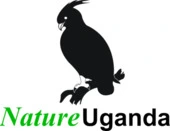Training a Cohort of Herpetologists to Increase Baseline Data Knowledge in Uganda – to Build Capacity for Herpetology Surveys in Key Ecosystems of East Africa
Uganda is one of the most biodiversity-rich countries in Africa, with several major biomes converging in the country. Currently, Uganda has about 22% of world’s amphibian and 19% reptilian species, yet key taxa remain poorly known or undocumented. The species distribution for both amphibians and reptiles in several key sites is incomplete or altogether missing. This grant will train a group of 10 students and 20 assistants in accurate field data collection (including taxonomy, population status and distribution) through both in situ and lab work.
This effort estimates that some 50,000 records will be generated, uploaded and publicly shared on data portals (GBIF/NBDB). Amphibians are well known to be key indicator species for wetlands and this project will mobilize taxonomic records and provide critical baseline data for evaluating biodiversity richness in the project areas, and to identify, map and promote conservation of freshwater Key Biodiversity Areas (KBAs).
Objectives
The project identifies the following direct objectives and primary activities:
Objective 1: Train a cohort of at least 10 Ugandan students and 20 assistants in herpetological identification and data collection methods collection (to include taxonomy, population status and distribution) through both in situ and lab work.
Objective 2: Collect field observation records of amphibian and reptilian species from selected eco-regions of Uganda, and enter them in databases on readily accessible portals. Resulting data will be shared through national and international biodiversity portals such as Nature Uganda, NBDB, GBIF.
Objective 3: Generate at least 50,000 records through field research surveys, data mining, collating, vetting, curation, storage and dissemination on web-portals of Uganda’s freshwater biodiversity.
Objective 4: Package and publicize the data in formats to be shared with different stakeholders including researchers, policy users, local communities and the public.



Project Director Biography
Mr. Achilles Byaruhanga (BSc, PGDE, Dip Law, MSc, MPhil) is the Executive Director of Nature Uganda, Uganda’s biggest membership organization, with over 3,500 members and strong programmes on awareness, education, research and conservation. Achilles has been a passionate voice for biodiversity in particular birds in Uganda for 27 years. He has been a conservation leader advocating for conservation of biodiversity through identification of Important Biodiversity Areas (IBAs) using birds as indicators, and has been instrumental in the designation of 12 Ramsar sites across Uganda. He is the lead author of ‘Important Bird Areas in Uganda’. His projects and programme integrates livelihood improvement of local communities through participatory such as collaborative Forest management or Community conservation stewardship programmes for sustainability. A video from Byaruhanga, discussing Uganda’s wetlands is available on youtube.
Mathias Behangana (BSc, PGDE, MSc, PhD): Is the lead herpetologist in Uganda with over 25 years of research in biodiversity focusing on herpetofauna. He has published extensively about the amphibians and reptiles of Uganda and is the co-author with Dr. Danny Hughes of “A Pocket Guide to the Chameleons of Uganda”. He has had stints as a lecturer in Herpetology, Conservation Biology, and Environmental Conservation at Makerere University, Islamic University in Uganda and United States International University in Kenya. As the Convener of the Herps Working Group at Nature Uganda, he is currently focusing on capacity building and research.

